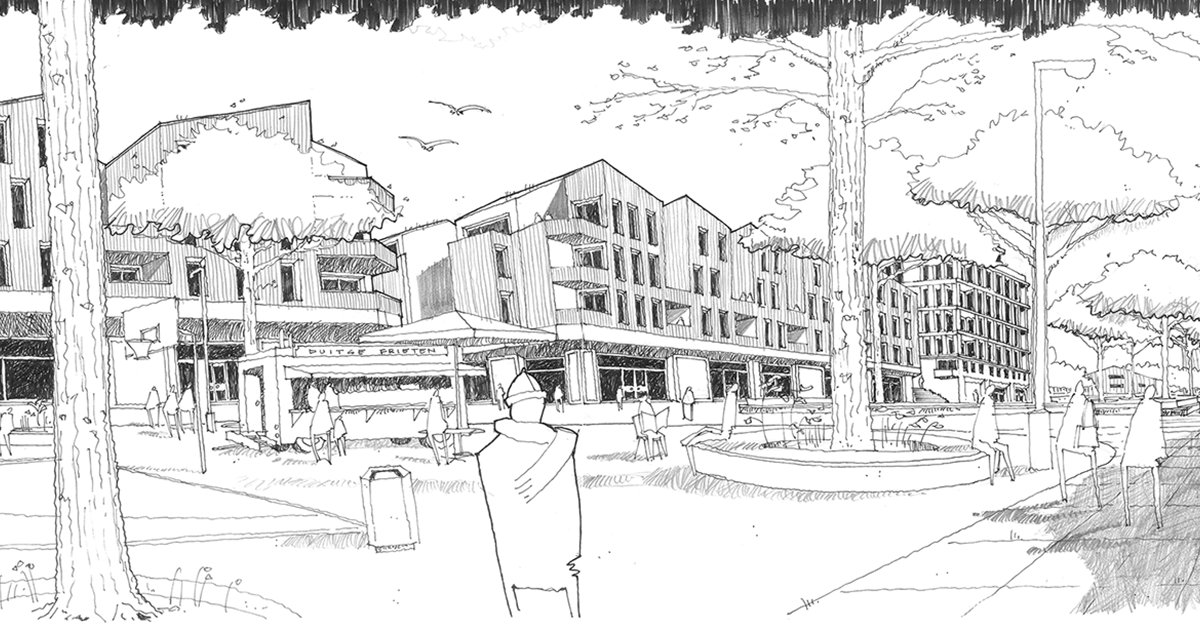
This master thesis is based on the scale of the urban design and the architectural design. The city of Bremen proposes to explore the possibilities for expanding the living capacity on a site that is used as a race track and golf course (85ha) south of the suburb Neue Vahr. This neighborhood consists of highly fragmented urban development. Mono-functionality has the upper hand and most of the buildings are aimed at living. Working- and shopping areas are closed off from the residential areas. This separating of functions in the peripheral city leads to a higher mobility flow, less efficient occupation of space, an inactive ground floor and, consequently, 'sleeping' neighborhoods. Public life in these neighborhoods forms mainly around the supermarkets. That's why we focus on bringing together living, working and shopping within a new master plan. The existing supermarket building next to the racecourse is very outdated and in poor condition, we therefore opt for the construction of a new supermarket. The new supermarket can act as a catalyst for several smaller private initiatives and the roof becomes an elevated ground for the new dwellings. So, we provide a revival of the public space, new neighborhood facilities and a densification of living. Hence, we do not only compel to increase housing but also to improve the quality of life of the entire neighborhood. This way, we aim a maximal impact on the environment with a minimal impact on the green space.
In their cooperation, both students managed to reach a higher level by combining their individual qualities. More than just a design project their work is a design research, which formulates answers to all of the context’s conditions. Starting from the larger urban scale, they have developed a critical vision on the planning policy of the city of Bremen, offering a sustainable alternative for it. The design focusses on both the urban scale and the architectural scale. The masterplan is process oriented and offers diversity in its functional possibilities based on diversity in spatial qualities. Beside of that the jury also appreciated the project for the down to earth quality of the architectural elaboration and praised this master thesis for both its academic and its professional level.